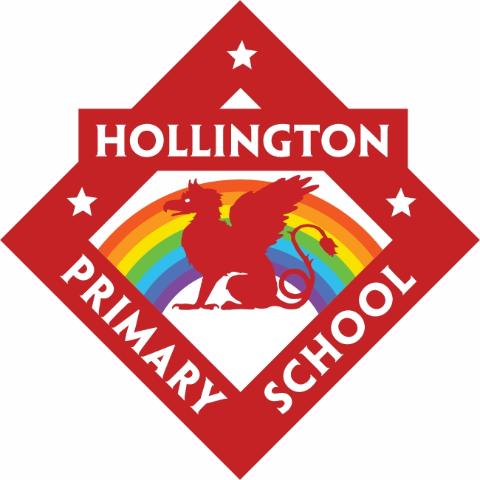Early Years Curriculum
At Hollington Primary School, we follow the EYFS framework, which focuses on the three prime areas of learning: Communication and Language, Physical Development, and Personal, Social, and Emotional Development. These core areas are then supported by the four specific areas of Literacy, Mathematics, Understanding the World, and Expressive Arts and Design.
Our approach to Early Years education is underpinned by our school’s vision and values. We put children first, pioneering excellence and championing each and every child. We take pride in providing a kind, safe and happy community where we aspire to inspire. We believe in providing a diverse, holistic, and purposeful learning experience that taps into each child’s strengths while addressing their areas of development. Through carefully planned activities and experiences, we aim to develop our pupils’ resilience and independence, preparing them for the next stage of their educational journey.
At Hollington Primary School, our Early Years setting is a vibrant and engaging environment where children are encouraged to explore, discover, and learn through play. Our dedicated team of Early Years practitioners work tirelessly to create a stimulating and nurturing atmosphere, fostering a love of learning that will stay with our pupils long after they leave our care.
We provide these learning opportunities across the following topics:
Term 1 | Term 2 | Term 3 | Term 4 | Term 5 | Term 6 | |
Nursery | All About me | Nursery Rhymes | Dinosaurs | Traditional Tales | Farm | Pirates |
Reception | Marvellous | Celebrations | Space | Traditional Tales | Fantastic Creatures | Under the Sea |
We recognise the vital role that parents play in their child’s education, and we are committed to working closely with families to support their child’s development. Throughout the Early Years, we provide regular opportunities for parents to engage with their child’s learning, from parent-teacher meetings, Class Dojo online platform, Tapestry observation learning journey and showcases of their child’s work.
Outdoor Learning
We believe the outdoor environment is different to the indoor one and thus provides different experiences that they cannot get inside. Our outdoor environments expose children to nature, weather and real experiences of the world around them. We understand that indoor topic based learning can be extended and developed through the outdoor environment, however outdoor opportunities are valued in their own right.
- Our outdoor environment is open-ended and allow children to take their learning in any direction they choose
- Zones and areas outside can be set up with the Reggio Philosophy of “an invitation to play”
- Indoor topic-based learning may form some of the experiences outside however there should also be equal scope for children’s own possible lines of enquiry
- All areas should be made clean, tidy and safe at the end of the day.


